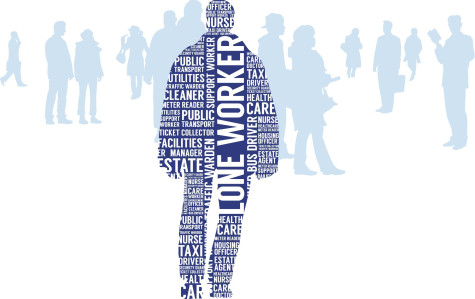What is a Lone Worker?
Published At: Tue 15 Aug 2023

The term Lone Worker may sound unfamiliar to some, but it represents a significant portion of the UK workforce. The question, "What is a lone worker?" often arises among employers and employees alike. This blog post aims to shed light on this concept, its implications, and why understanding it is crucial for businesses.
What is an example of a Lone Worker?
A lone worker refers to an employee who performs their duties independently without close or direct supervision. These individuals often work outside of typical working hours and in situations where there are no other workers present. This could include roles such as home care nurses visiting patients independently, maintenance workers operating in remote areas, welfare officers conducting a home visit, or sales representatives meeting clients off-site.
The Health and Safety Executive (HSE) in the UK defines a lone worker as someone "who works by themselves without close or direct supervision." It's estimated that there are approximately 8 million lone workers in the UK, making up about 22% of the total workforce.
Understanding the Risks Associated with Lone Working
It's important to understand that lone workers often face unique risks compared to those working within teams or under direct supervision. These risks can range from physical dangers related to their job role (such as entering an unknown isolated location) to health risks associated with isolation (like stress or mental health issues).
Moreover, if an emergency arises, such as a sudden illness or an accident at work, a lone worker may not have immediate access to help. Therefore, employers must ensure they have robust safety measures, policies and training in place for their lone workers.
Legal Obligations for Employers of Lone Workers
Employers have legal obligations towards all their employees under UK law - including those who work alone. The Health and Safety at Work Act 1974 requires employers to ensure the health and safety of all their employees so far as reasonably practicable. This includes providing adequate training, such as Lone Worker Personal Safety courses, and implementing effective risk management strategies.
For lone workers specifically, employers should conduct thorough risk assessments that consider factors such as work environment, nature of tasks performed by the employee, potential hazards faced by them during their job role etc. Employers should also provide appropriate training for dealing with emergencies that may arise during lone working.
The Importance of Lone Worker Policies
Having clear policies around lone working is crucial for both employers and employees. A well-structured policy can outline what is expected from both parties regarding safety measures, communication protocols during work hours and emergency procedures.
Such policies not only help protect employees but also provide guidance on how they should handle certain situations while working alone. For instance, how they should report any incidents or concerns about their safety.
Conclusion
In conclusion, understanding "what is a lone worker?" goes beyond just knowing its definition; it involves recognising the unique challenges these individuals face while performing their duties independently. Employers bear responsibility for ensuring these workers' safety through comprehensive risk assessments, robust policies tailored specifically for them and expert training to help them maintain their safety.
By fostering an environment where every employee feels safe regardless of whether they work alone or within teams - businesses can not only meet legal obligations but also contribute towards creating healthier workplaces where everyone thrives.
Why Choose SecuriCare Training?
SecuriCare has been training Lone Workers since we were founded in 1995. We have been providing training to some of the UK’s biggest employers of Lone Workers, including The RSPCA and British Gas, both of whom have trusted in SecuriCare to help keep their staff safe for over 15 years.
Our team of experienced Trainers and bespoke online learning solutions can be utilised to provide you with the best possible training solution to suit your particular needs. Contact us today to discuss your training requirements with one of our expert team members.
